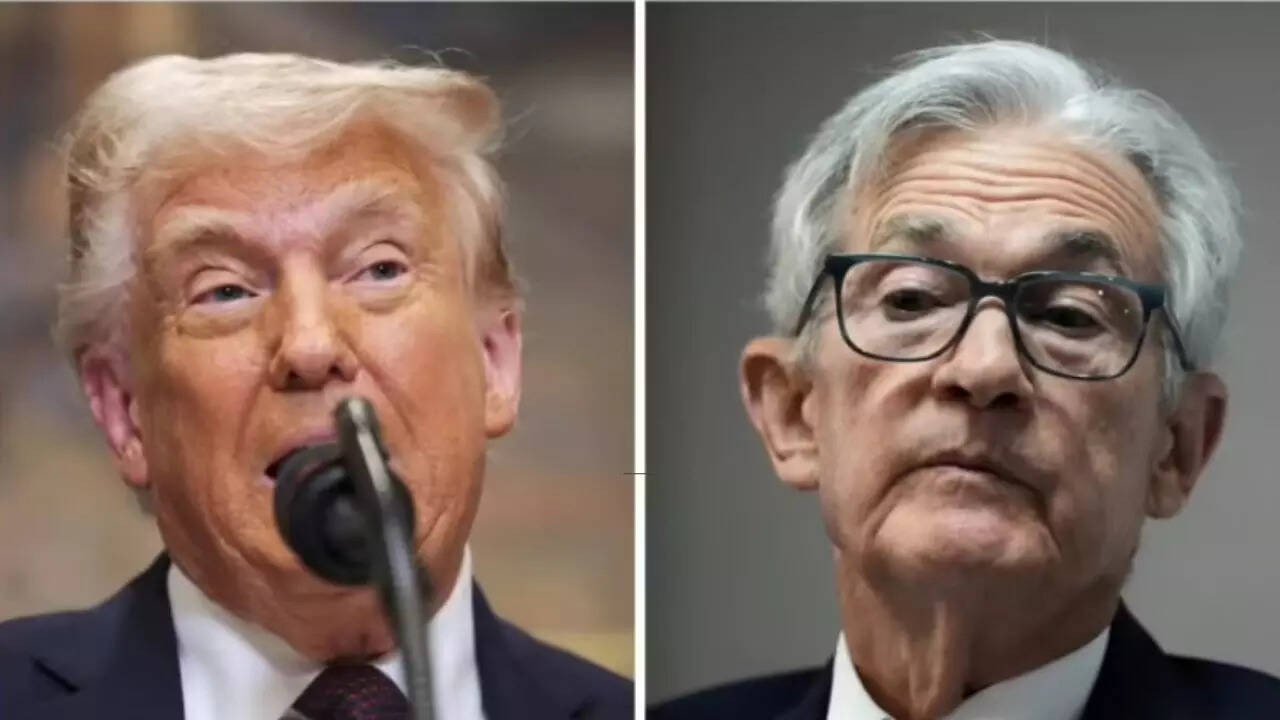US president Trump criticised Federal Reserve Chairman Jerome Powell for not cutting interest rates, labeling him a “real dummy” and blaming him for economic harm. This came after the Fed decided to hold steady, citing a need to monitor inflation and the impact of new tariffs. The Fed also revised its economic outlook, lowering growth forecasts and raising inflation expectations.
Trump’s Fed Frustrations: Is Powell Holding Back America’s Boom?
Okay, buckle up, folks. It seems the former President, Donald Trump, is back at it again, stirring the pot in the world of finance, and this time, his target is none other than Jerome Powell, the Federal Reserve Chair. Now, I’m not going to pretend I know the ins and outs of monetary policy like the back of my hand, but even I can understand the frustration that seems to be brewing.
According to recent reports, Trump has publicly stated that Powell is costing America “billions” by not cutting interest rates further. This isn’t exactly a new song and dance; during his presidency, Trump frequently voiced his displeasure with the Fed’s interest rate decisions, often arguing that they were hindering economic growth. But even out of office, it’s clear he hasn’t lost his fire when it comes to the Fed.
So, what’s the deal? Why is Trump so keen on these rate cuts? The basic idea is this: lower interest rates make it cheaper for businesses and individuals to borrow money. This can lead to increased investment, spending, and ultimately, economic growth. Think of it like this: if you can get a lower interest rate on a mortgage, you’re more likely to buy a house, right? And when people buy houses, they also buy furniture, appliances, and hire contractors – all of which stimulate the economy.
Trump’s argument, as it appears, is that by keeping interest rates where they are, Powell is holding back a potential economic boom. He seems to believe that the Fed is being overly cautious and that a more aggressive approach to rate cuts would unleash a wave of economic activity.
Now, there’s always another side to the coin. The Fed’s primary mandate is to maintain price stability, meaning to keep inflation under control. Lowering interest rates can indeed boost the economy, but it also carries the risk of overheating it, leading to inflation. If prices start rising too quickly, it can erode purchasing power and create economic instability. It’s a delicate balancing act, a tightrope walk between encouraging growth and preventing runaway inflation.
Powell and the Fed are presumably taking a more cautious approach, weighing the risks of inflation against the potential benefits of further rate cuts. The economic data is, shall we say, mixed. We’ve seen some positive signs of growth, but inflation has proven to be more persistent than initially anticipated. The Fed also has to consider global economic conditions, which can influence inflation and growth here at home. It’s not just about what’s happening within the US borders.
Here’s where my subtle opinion creeps in. While I understand the desire for faster growth, particularly when you have a vocal advocate pushing for it, I also appreciate the Fed’s commitment to price stability. We’ve all seen what happens when inflation spirals out of control, and the consequences can be devastating for households and businesses alike. History is littered with examples.
Ultimately, the question of whether Powell is “costing America billions” is a matter of perspective and depends on how you weigh the risks and benefits of different monetary policies. One could argue that maintaining stable prices is a benefit in itself, even if it means sacrificing some potential short-term growth.
So, what does all this mean for you and me? Well, if the Fed does decide to cut rates further, we could see lower borrowing costs for things like mortgages, car loans, and credit cards. This could put more money in our pockets and make it easier to make big purchases. On the other hand, if inflation starts to rise, we could see the prices of everyday goods and services go up, eroding our purchasing power.
The bottom line is that the Fed’s decisions have a significant impact on our lives, and it’s important to stay informed about what’s happening in the world of monetary policy. Whether you agree with Trump’s criticisms or not, it’s clear that his voice continues to resonate in the financial world, and his opinions are something to keep an eye on as we navigate the ever-changing economic landscape. The conversation definitely isn’t over, and I, for one, am keen to see how it unfolds.







